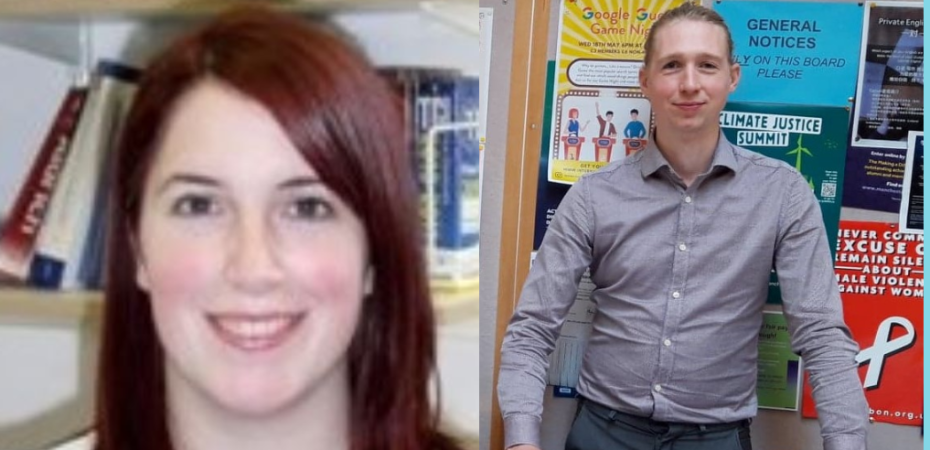Featured images of PhD Chemistry alumni: Heather Johnston and James Paliga
A big thank you to PhD Chemistry alumni, Heather Johnston and James Paliga, for shining the spotlight on working at a CRO in the Drug Discovery (Pharmaceutical) Industry and providing an insight into their career journeys.
So, what is a CRO?
Heather – Often when I tell people I work for a CRO, I get a very blank look! CRO stands for contract research organisation. They are small to medium size companies with highly specialised skill sets. I’ve worked on projects where the clients are ‘Big Pharma’, University spin outs and Biotechs. Sometimes the clients have their own team of chemists working alongside us, while others have no chemistry resources at all. The shortest project I took part in was just one month, while my current project has been running for six to seven years.
James – It may not be immediately obvious why CROs are necessary, but sometimes a business will have funding to test a new idea, but no spare employees. This is when working with a CRO comes in handy: we provide the people to do the work, generally have all the specialised equipment needed, and can provide integrated project support as the project progresses. From a chemist’s perspective, working for a CRO can be beneficial, as we get the opportunity to work on a variety of different projects and can learn about multiple clinical areas. It’s also great to collaborate across departments with colleagues in computational chemistry, bioscience and drug metabolism and pharmacokinetics (DMPK) and see how their work can help drive a project.
How did you end up working for a CRO?
Heather – The pharmaceutical industry has changed a lot over the past 20 years. I finished my masters in 2010 when there were very few jobs on the market due to the financial crash. I went on to do a PhD in Organic Chemistry at the University of Edinburgh (2010-2014) and after that worked as an analytical chemist for a company which tested pharmaceutical products. While I have always wanted to work in the pharmaceutical industry, that role was not for me so after about six months, I returned to academia to do a postdoc studying innate immune responses. I followed that up with a postdoc in structural biology, which I enjoyed, but it led me to decide I really did want to get back into drug discovery. That was when I applied to Sygnature Discovery. I’ve now worked at Sygnature for more than five years and have learned a lot in that time. Because we work with so many different clients, we are exposed to lots of different therapeutic areas and we have a huge variety of in-house experience to rely on too.
James – I have always had an interest in chemistry and the pharmaceutical industry; something about being involved in the process of developing something that will benefit a patient’s quality of life really appealed to me. When I finished my PhD in 2017, there were very few openings in big pharmaceutical companies and most opportunities I came across were for CROs. I ended up accepting a job with Sygnature Discovery just three months after leaving Edinburgh, and have been there ever since! I had no medicinal chemistry knowledge when I started, which was daunting, however, I have learnt so much from the range of experienced chemists from different backgrounds.
What is a typical day like at a CRO?
James – I am in the lab for most of my day, progressing routes to targets for our clients and purifying final compounds for dispatch. The main focus in industry is obtaining the final compounds rather than individual reaction optimisation, so we need to ensure we can do this in the most efficient number of synthetic steps. Other than lab work, I will regularly be examining biological data sent from the client in order to suggest new ideas to solve problems on the project. I also have responsibilities such as lab management and sitting on the technical interview panel for recruitment.
Heather – I have a slightly different role from James and spend a bit less time in the lab, but my project runs very similarly with time spent on synthesis of new compounds and analysis of biological/DMPK data. I am a deputy project leader and line manager, as well as being involved in recruitment, internal training activities and organising conferences by acting as Sygnature Discovery’s representative on the SCI Young Chemists Panel.
Thanks Heather and James for this great insight.
If you would like to read more stories of post-PhD careers in Life Sciences, check out these case studies on the Scottish Universities Life Sciences Alliance (SULSA) website.


